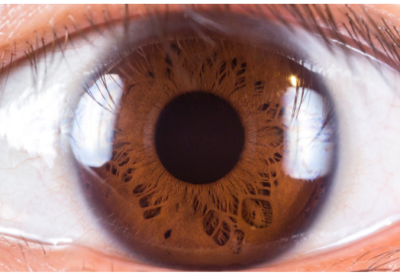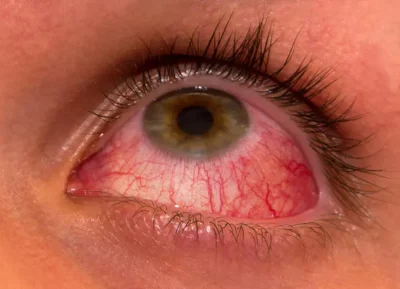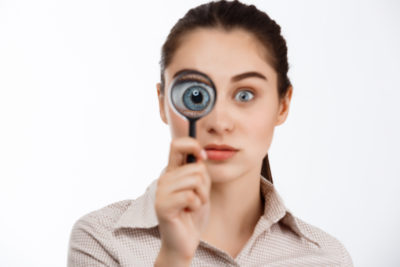In ancient Greece, if you noticed that your eyelid was twitching, you would have to run in search of a cactus. Whereas if you were Egyptian, noticing that your left eye was twitching meant that you had to go visit the fortune teller. On the other hand, if you were Chinese, you would have to consult the time of the day.
Wondering what eyelid twitching has to do with cacti or fortune tellers, or the watch? Well, noticing an eye twitch meant that the Greeks would spit and keep a cactus outside their home to ward off the evil eye. Whereas it is said that in Egypt, fortune tellers predicted events based on the twitching. As for the Chinese, based on the time of day in which your eye is twitching, you can either expect an invitation to an important dinner party or lose money or so forth.
While cultural beliefs about left or right eye twitching are common in India, medical experts often attribute eye twitching to factors such as fatigue, stress, or eye strain. Understanding the clinical causes helps distinguish myth from medically recognised triggers.
Medically termed ‘myokymia,’ eyelid twitching results from involuntary, repetitive spasms of the eyelid muscles. It is usually benign and self-limiting, often linked to stress, fatigue, or caffeine intake. Diagnosis is clinical, and management focuses on addressing underlying triggers and lifestyle modifications. Often, this is usually painless and more of a nuisance than anything else. Sometimes, these may persist for days, weeks or even months, causing a lot of emotional disturbance.
So why does the eye twitch?
Here are the top ten reasons for eye twitching:
- Stress
- Tiredness
- Dry Eyes
- Alcohol
- Allergies
- Caffeine
- Tobacco
- Lack of Sleep
- Eye Strain
- Nutritional Imbalance
How To Stop Eye Twitching?
If stress, fatigue, or lack of sleep is contributing to eye twitching, rest and relaxation, such as a short nap, can often provide relief. However, if the twitching persists for more than a few days or is accompanied by other symptoms, it’s advisable to consult an eye care professional for further evaluation. Eye strain can also be due to a need for a change of glasses or overuse of computers/ smartphones. If your alcohol, tobacco, or caffeine intake has increased recently, it’s best to cut that down. There could be more serious damage happening to your body than just eyelid twitching. Your eye doctor can help determine if dry eyes or eye allergies are the reasons for your eye twitching and how to take care of them. In rare cases where eyelid twitching becomes chronic and does not respond to lifestyle changes, an oculoplasty specialist may recommend Botox injections. This treatment is typically reserved for persistent or severe cases, such as benign essential blepharospasm, and should only be considered after professional evaluation.
Common Misconceptions About Eye Twitching
Superstitions and Beliefs
Eye twitching has long been associated with superstitions, especially in many cultures across India. People often interpret it as a sign of good or bad luck. However, from a medical perspective, twitching is usually a benign, temporary condition linked to fatigue, stress, or lifestyle factors.
Eye Twitching and Specific Events
Some believe that twitching of the right or left eye indicates upcoming events like meeting someone or receiving news. There is no scientific evidence to support these claims. Persistent twitching should be viewed through a clinical lens and not linked to omens.
Eye Twitching and Gender/Age
Cultural myths often suggest that twitching has different meanings based on gender or age. Medically, however, it can affect people of any age and gender, particularly those experiencing high screen time, stress, or disrupted sleep cycles.
Eye Twitching and Future Predictions
Eye twitching is often thought to predict future outcomes, but there is no scientific basis for such beliefs. In clinical settings, prolonged twitching may warrant further evaluation to rule out neurological or muscular conditions.
How to Prevent Eye Twitching?
Manage Stress
High stress levels can trigger muscle spasms, including eyelid twitching. Incorporating relaxation techniques like deep breathing, mindfulness, and regular breaks during work can significantly reduce the frequency of twitching episodes.
Prioritise Sleep
Inadequate rest is a common trigger. Aim for 7–8 hours of uninterrupted sleep to allow your eye muscles to relax and recover. Consistent sleep patterns also support overall eye health.
Reduce Caffeine and Alcohol
Excessive intake of caffeine or alcohol can overstimulate your nervous system and worsen muscle twitching. Moderation or temporary reduction may help resolve symptoms.
Eye Strain
Extended screen time without breaks can fatigue the ocular muscles. Follow the 20-20-20 rule: every 20 minutes, look 20 feet away for 20 seconds to reduce digital eye strain.
Eye Hygiene
Practising good eye hygiene, such as not rubbing your eyes, cleaning lenses properly, and avoiding expired eye makeup, helps prevent irritation that may contribute to twitching.
Hydration
Dehydration can affect muscle function, including the eyelids. Ensure adequate daily fluid intake to support neuromuscular health.
Can Eye Twitching Be Treated?
Yes, eye twitching can be treated, especially if it becomes frequent or persistent. Most cases resolve without intervention, but if symptoms persist beyond a week or affect daily life, treatment may be needed. Management includes reducing triggers (e.g., stress or screen time), using lubricating eye drops for dryness, or, in severe cases, medical treatments like Botox injections. Always consult an eye care professional for personalised advice.
Eye Twitching and Neurological Conditions
Chronic or severe eye twitching may indicate underlying neurological issues. Conditions such as blepharospasm (involuntary blinking) or hemifacial spasm (twitching affecting one side of the face) require specialist evaluation. These disorders may need neurology referrals and advanced management options, including medications or Botox therapy. If eyelid spasms persist, worsen, or extend to other parts of the face, it’s important to seek medical assessment promptly.
How Stress Affects Your Eyes: Understanding the Link
Stress is a cmmon but underestimated factor affecting eye health. It can lead to eyelid twitching, dry eyes, visual disturbances, and even flare-ups in conditions like blepharitis. Stress-induced muscle fatigue can cause repetitive spasms in the eyelids, known as myokymia. Managing stress through mindfulness, regular sleep, hydration, and limiting screen exposure can help restore ocular comfort and reduce twitching episodes.
Should You Visit a Doctor for Eye Twitching?
Most eye twitching is harmless and short-lived. However, you should consult an eye doctor if:
- Twitching lasts longer than a week
- It interferes with vision or daily activities
- It’s accompanied by redness, swelling, or drooping eyelids
- Other facial muscles are involved
Persistent symptoms may signal underlying conditions requiring expert care. Timely diagnosis can help prevent complications and provide relief through appropriate treatment.









